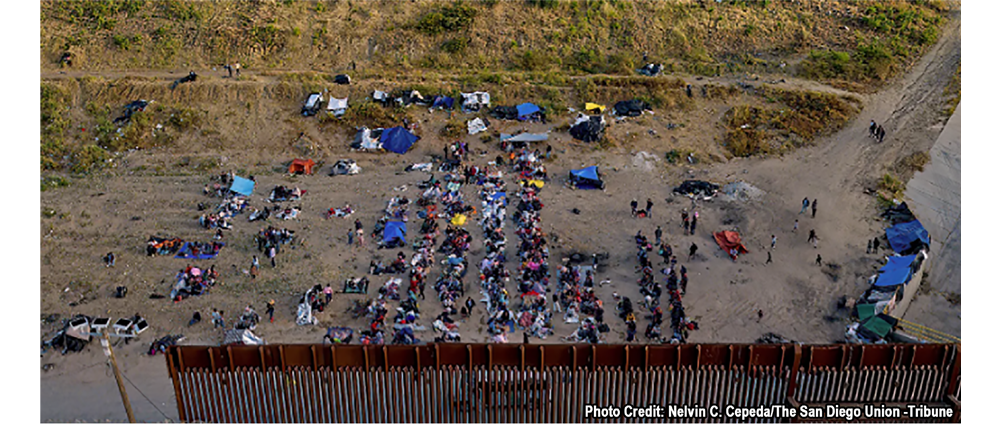by Kristen Ku
BELIZE CITY, Thurs. May 18, 2023
On May 4, 2023, the U.S. Department of State and the Department of Homeland Security (DHS) announced a series of measures to regulate immigration across the Western Hemisphere, just ahead of Title 42’s expiration on May 11. These measures, affecting migrants worldwide, also hold profound implications for Belizeans longing for opportunities in the United States.
Under Title 42, enacted during the COVID-19 pandemic, U.S. authorities were authorized to expel migrants at the southern border without due process. Its termination symbolizes a beacon of hope for so many immigrants, who often endure gruesome journeys seeking a better life. This optimism, however, was hit with harsh reality this week at the border.
According to the U.S. State Department, the termination of Title 42 does not signify an open border. Instead, it signifies a return to Title 8 immigration authorities, meaning swift processing and removal of individuals arriving at the border unlawfully.
The consequences for such crossings include at least a five-year ban on re-entry and potential criminal prosecution for repeat attempts of unlawful entry. For Belizeans attempting unauthorized crossings, this could result in significant long-term consequences.
Despite these warnings, the hope of entering the U.S. persists for Belizeans who find themselves in desperate situations, like many others worldwide who are fleeing economic hardships and corruption, and are looking for better opportunities. For many, the simple probability of receiving asylum in America is what drives them to take the extensive journey and risks. For those Belizeans considering a move up north, the U.S. government is encouraging the use of legal pathways for entry.
Last week, a Belizean who made the journey, along with over 200 immigrants who now camp at the US-Mexico border fence, was interviewed by Andrea Flores from KCRA3, an American news outlet. She detailed her experience in receiving resources. She explained that due to the rising numbers, families and groups have been assigned into lines where resources are given to be distributed amongst the group by its leader, but the system had not been working well, and those at the back of the line sometimes fail to receive food.
“Let’s say at the front, they have more attention, the more priorities. They have kids, they give all the attention to them and that is good; that is good because the kids they do need to get food and stuff, you know. But we are also, you know, hungry, and probably you can give us one or two stuff; but sometimes they don’t watch us, like we don’t exist at the back. And that’s what’s hurting us, and that is why I come here to the front to see if I can get something to eat,” she explained.
In preparation for a potential surge in border crossings, the U.S. government has deployed hundreds of troops along the Mexican border. While Belizeans and other immigrants may find this intimidating, the U.S. says the intent is to ensure orderly processing and prevent overstraining resources. The U.S., while firm in reducing unlawful migration, also emphasizes the expansion of legal pathways. Belizeans seeking to realize their American dream might have to come to terms with the understanding that legal procedures may serve them best.

